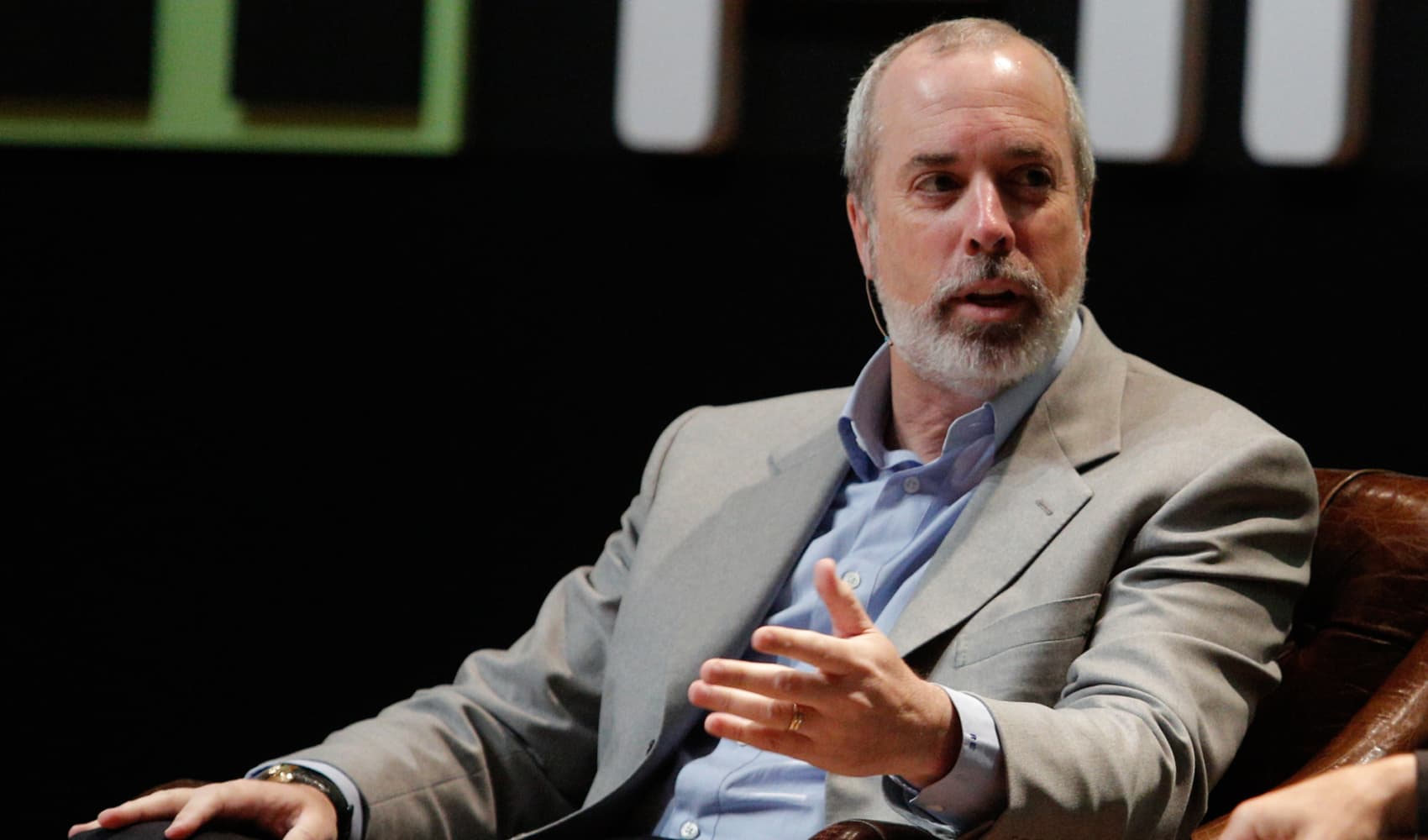Tariffs Hit Home: Expert Advice for Consumer Financial Resilience
Tariff Tensions: How Consumers Are Reacting & Expert Financial Advice
Introduction: Navigating the Tariff Tightrope
Are you feeling a little uneasy about the economy lately? You're not alone. It seems like every time you turn on the news, there's talk of tariffs, trade wars, and potential recessions. It's enough to make anyone's head spin! But what's really happening, and more importantly, what can you do to protect your financial well-being? The truth is, consumers are already adjusting their spending habits in response to these economic pressures. This article breaks down the situation and provides actionable advice from financial experts to help you prioritize your financial moves.
The Tariff Tidal Wave: Consumer Concerns Surge
A recent NerdWallet survey reveals that a staggering 85% of Americans are concerned about the impact of tariffs. That's a huge number! It's like a giant warning flag waving in the wind. This widespread anxiety highlights a deep-seated unease about the future economy. But what exactly are people worried about?
Top Consumer Fears
- Rising Prices: The biggest concern is that tariffs will drive up the cost of everyday necessities. Imagine your grocery bill suddenly jumping 10% or 20%. That's a real worry for many families.
- Recession Fears: Another major fear is that tariffs could trigger a recession. It's like a domino effect: tariffs lead to higher prices, higher prices lead to decreased spending, and decreased spending can lead to job losses and economic downturn.
Cracks in Confidence: Consumer Sentiment Declines
It's not just the NerdWallet survey that's painting a concerning picture. The University of Michigan's consumer survey also shows a significant drop in consumer sentiment. Think of consumer sentiment as a collective mood ring for the economy. When it turns gloomy, it's a sign that people are feeling pessimistic about the future.
Why Consumer Sentiment Matters
Consumer sentiment is a powerful indicator of economic health. When people are confident, they're more likely to spend money, fueling economic growth. But when they're worried, they tend to tighten their belts and save more, which can slow down the economy. So, a decline in consumer sentiment is a red flag that shouldn't be ignored.
Financial First Aid: Prioritizing Emergency Savings
So, what's the first thing you should do when faced with financial uncertainty? Experts overwhelmingly recommend focusing on your emergency savings. It's like building a financial fortress to protect yourself from the storm.
Why Emergency Savings Are Crucial
An emergency fund is your safety net in case of unexpected expenses, such as job loss, medical bills, or car repairs. Having a healthy emergency fund can provide peace of mind and prevent you from going into debt when life throws you a curveball.
How Much Should You Save?
The general rule of thumb is to save 3-6 months' worth of living expenses in an emergency fund. This may seem like a daunting goal, but every little bit helps. Start small and gradually increase your savings over time. Consider automating your savings by setting up a recurring transfer from your checking account to your savings account.
Beyond Savings: Other Smart Financial Moves
Building an emergency fund is a great starting point, but it's not the only thing you should be doing to protect your finances. Here are some other smart moves to consider:
Re-evaluate Your Budget
Take a close look at your budget and identify areas where you can cut back. Are there any subscriptions you're not using? Can you reduce your dining out expenses? Finding even small savings can make a big difference over time.
Pay Down Debt
High-interest debt can be a major drain on your finances. Focus on paying down your credit card debt and other high-interest loans as quickly as possible. The snowball or avalanche method can be helpful for prioritizing debt repayment.
Diversify Your Investments
Don't put all your eggs in one basket. Diversify your investment portfolio to reduce your risk. This means spreading your investments across different asset classes, such as stocks, bonds, and real estate.
Consider a Side Hustle
A side hustle can provide an extra income stream to help you build your savings or pay down debt. There are many options to choose from, such as freelancing, driving for a ride-sharing service, or selling goods online.
The Pause on Reciprocal Tariffs: A Brief Respite?
Even though there's a temporary pause on reciprocal tariffs, it's important to remember that this is just a pause, not a permanent solution. Consumers are already anticipating the potential for higher prices in the future. It's like knowing a storm is coming and preparing accordingly.
Don't Get Complacent
Don't let the pause on tariffs lull you into a false sense of security. Continue to prioritize your financial health and make smart decisions with your money. The future is uncertain, but you can control your response to it.
Investing in Yourself: Skills and Education
In times of economic uncertainty, investing in yourself is one of the best things you can do. This includes acquiring new skills, getting additional education, or improving your professional network. These investments can make you more employable and increase your earning potential.
Boosting Your Market Value
Consider taking online courses, attending workshops, or pursuing certifications in your field. These investments can make you more valuable to employers and give you a competitive edge in the job market.
Staying Informed: Keep an Eye on the Economic Horizon
Staying informed about economic trends and government policies is crucial for making informed financial decisions. Follow reputable news sources and consult with financial professionals to stay up-to-date on the latest developments. Think of yourself as a weather forecaster for your own finances, always keeping an eye on the horizon.
Reliable Sources of Information
Be cautious about where you get your information. Stick to reputable news sources, financial publications, and government websites. Avoid relying on social media or unreliable sources that may spread misinformation.
Long-Term Planning: Retirement and Beyond
While it's important to focus on short-term financial challenges, don't neglect your long-term financial goals. Continue to contribute to your retirement accounts and review your investment strategy regularly. A well-planned retirement is still achievable, even in uncertain times.
Don't Panic Sell
Avoid making rash decisions with your investments during market downturns. Panic selling can lock in losses and hinder your long-term financial goals. Stay calm and stick to your investment strategy.
Seeking Professional Guidance: When to Consult a Financial Advisor
If you're feeling overwhelmed or uncertain about your financial situation, consider consulting with a qualified financial advisor. A financial advisor can help you create a personalized financial plan, manage your investments, and navigate complex financial decisions. It's like having a financial GPS to guide you on your journey.
Finding the Right Advisor
Do your research and find a financial advisor who is trustworthy, experienced, and fits your needs. Ask for referrals from friends or family members, and check the advisor's credentials and background.
The Power of Perspective: Staying Positive Amidst Uncertainty
It's easy to get caught up in the doom and gloom of economic news, but it's important to maintain a positive perspective. Remember that economic cycles are normal, and periods of uncertainty are often followed by periods of growth. Focus on what you can control, such as your savings, spending, and investment decisions.
Focus on the Long Term
Don't let short-term fluctuations derail your long-term financial goals. Stay focused on your vision and continue to make smart decisions that will help you achieve your dreams.
Conclusion: Taking Control of Your Financial Future
Tariffs and economic uncertainty can be unsettling, but by taking proactive steps to protect your finances, you can weather the storm. Prioritize building your emergency savings, re-evaluate your budget, pay down debt, and seek professional guidance when needed. Remember, you are in control of your financial future. By staying informed, making smart decisions, and maintaining a positive perspective, you can navigate these challenging times and achieve your financial goals.
Frequently Asked Questions (FAQs)
Here are some frequently asked questions about tariffs and their impact on consumers:
- Q: What are tariffs, and how do they affect me?
- A: Tariffs are taxes imposed on imported goods. These taxes can increase the cost of goods that are imported, leading to higher prices for consumers. This can affect everything from electronics and clothing to food and household items.
- Q: How much emergency savings should I aim for?
- A: Financial experts generally recommend having 3-6 months' worth of living expenses saved in an emergency fund. This can provide a cushion in case of unexpected job loss, medical emergencies, or other unforeseen circumstances.
- Q: What are some ways to cut back on my budget during uncertain times?
- A: Consider cutting back on non-essential expenses, such as dining out, entertainment, and subscriptions. Look for cheaper alternatives to your current services, and try to negotiate lower rates on your bills. Small changes can add up to significant savings over time.
- Q: Should I change my investment strategy in response to tariffs?
- A: It's generally not recommended to make drastic changes to your investment strategy based on short-term economic fluctuations. However, it's always a good idea to review your portfolio regularly and ensure that it's aligned with your long-term financial goals. Consider consulting with a financial advisor to get personalized advice.
- Q: Where can I find reliable information about economic trends and government policies?
- A: Stick to reputable news sources, financial publications, and government websites. Be wary of information shared on social media or from unreliable sources. Cross-reference information from multiple sources to ensure accuracy.







